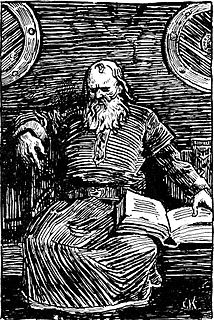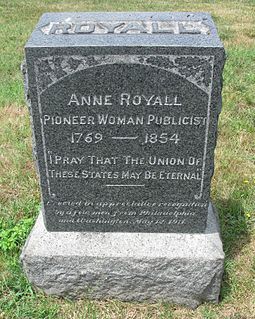A Quote by Alexander Hamilton
The President is to be commander-in-chief of the army and navy of the United States. In this respect his authority would be nominally the same with that of the king of Great Britain, but in substance much inferior to it. It would amount to nothing more than the supreme command and direction of the land and naval forces, as first general and admiral ... while that of the British king extends to the declaring of war and to the raising and regulating of fleets and armies - all which, by the Constitution under consideration, would appertain to the legislature.
Quote Topics
Admiral
Amount
Armies
Army
Authority
Britain
British
Chief
Command
Commander
Commander-In-Chief
Consideration
Constitution
Declaring
Direction
First
Forces
General
Great
Great Britain
His
Inferior
King
Land
Legislature
More
Much
Naval
Navy
Nothing
President
Raising
Respect
Same
States
Substance
Supreme
Than
United
United States
War
Which
While
Would
Would Be
Related Quotes
The Constitution expressly and exclusively vests in the Legislature the power of declaring a state of war [and] the power of raising armies.... A delegation of such powers [to the President] would have struck, not only at the fabric of our Constitution, but at the foundation of all well organized and well checked governments. The separation of the power of declaring war from that of conducting it, is wisely contrived to exclude the danger of its being declared for the sake of its being conducted.
The president does not have power under the Constitution to unilaterally authorize a military attack in a situation that does not involve stopping an actual or imminent threat to the nation. As commander in chief, the president does have a duty to protect and defend the United States. In instances of self-defense, the president would be within his constitutional authority to act before advising Congress or seeking its consent.
'A Naval History of Britain' which begins in the 7th century has to explain what it means by Britain. My meaning is simply the British Isles as a whole, but not any particular nation or state or our own day... 'Britain' is not a perfect word for this purpose, but 'Britain and Ireland' would be both cumbersome and misleading, implying an equality of treatment which is not possible. Ireland and the Irish figure often in this book, but Irish naval history, in the sense of the history of Irish fleets, is largely a history of what might have been rather than what actually happened.
The President of the United States would be liable to be impeached, tried, and upon conviction of treason, bribery, or other high crimes and misdemeanors, removed from office; and would afterwards be liable to prosecution and punishment in the ordinary course of law. The person of the King of Great Britain is sacred and inviolable: There is no constitutional tribunal to which he is amenable, no punishment to which he can be subjected without involving the crisis of a national revolution.
Some people reckoned up all King Harald's (King of Norway) great achievements, and said that nothing would be too difficult for him. But there were others who said that England would be very hard to conquer. It was very populous and the warriors who were known as the king's Housecarls were so valiant, that any one of them was worth two of the best in King Harald's army
The President, and government, will only control the militia when a part of them is in the actual service of the federal government, else, they are independent and not under the command of the president or the government. The states would control the militia, only when called out into the service of the state, and then the governor would be commander in chief where enumerated in the respective state constitution.
To hold that Congress has general police power would be to hold that it may accomplish objects not intrusted to the general government, and to defeat the operation of the 10th Amendment, declaring that 'the powers not delegated to the United States by the Constitution, nor prohibited by it to the states, are reserved to the states respectively, or to the people.
If an earthly king was to issue out a royal proclamation, on performing or not performing the conditions therein contained, the life or death of his subjects entirely depended, how solicitous would they be to hear what those conditions were? And shall not we pay the same respect to the King of kings and Lord of lords and lend an attentive ear to his ministers, when they are declaring, in his name, how our pardon, peace, and happiness may be secured?
On the whole, yes, I would rather be the Chief Justice of the United States, and a quieter life than that which becomes at the White House is more in keeping with the temperament, but when taken into consideration that I go into history as President, and my children and my children's children are the better placed on account of that fact, I am inclined to think that to be President well compensates one for all the trials and criticisms he has to bear and undergo.
If Aristotle, Livy, and Harrington knew what a republic was, the British constitution is much more like a republic than an empire. They define a republic to be a government of laws, and not of men. If this definition is just, the British constitution is nothing more or less than a republic, in which the king is first magistrate. This office being hereditary, and being possessed of such ample and splendid prerogatives, is no objection to the government's being a republic, as long as it is bound by fixed laws, which the people have a voice in making, and a right to defend.
Figures cannot calculate the amount collected by those public and private robbers: it is more than would liberate every slave in the United States; it would pay the British debt! They say, We do not force people to give. I see no difference between forcing a man out of his money, at the mouth of a pistol, and forcing it from by trick and cunning; the crime is the same.
The sovereignty of the States is the language of the Confederacy and not the language of the Constitution. The latter contains the emphatic words. This Constitution and the laws of the United States which shall be made in pursuance thereof and all treaties made or which shall be made under the authority of the United States, shall be the supreme law of the land and the judges in every State shall be bound thereby, anything in the constitution or laws of any State to the contrary notwithstanding
































